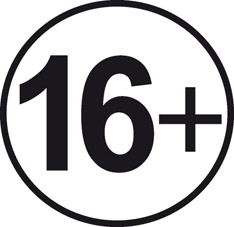Контакты Contacts
Почтовый адрес: Россия, 173003, г. Великий Новгород, ул. Б. С.-Петербургская, 41, ауд. 1308, Центр развития публикационной активности.
Тел.: 8 (8162) 33 88 30 доб. 2294;
Факс: (8162) 97 45 26.
E-mail: eNotes@novsu.ru
Postal address: Russia, 173003, Velikiy Novgorod, Yaroslav the Wise Novgorod State University, B.Sankt-Peterburgskaya St, 41 Bldg., 1308. Editorial Office.
Tel. (8162) 33-88-30 ext. 2294
Fax (8162) 97 45 26
|
|
|
Бакшаева Н. Ю. (Bakshaeva N. Yu.)
КОММУНИКАТИВНЫК ПРАКТИКИ УЧАСТНИКОВ ПРОЕКТА "ИСТОРИЯ ФАБРИК И ЗАВОДОВ": М. ГОРЬКИЙ, РАПП и МАПП
Аннотация. В статье исследован конкретный эпизод в истории литературного процесса 1920-1930-х гг. – участие А. М. Горького в деятельности Российской ассоциации пролетарских писателей. Осенью 1931 г. началась работа над «Историей фабрик и заводов» – главного общего дела писателя и организации. В рамках гранта «Максим Горький и низовое литературное движение» Российского научного фонда (грант No 23-28-01158) появилась возможность изучения источников, хранящихся в фонде Московской ассоциации пролетарских писателей (ИМЛИ РАН). Отчеты, стенограммы заседаний представителей литературных кружков на предприятиях и собраний членов райкомов ВКП(б), РАПП и его региональной секции отразили вовлеченность низового литературного движения в работу над ИФЗ. Эпистолярное наследие писателя и опубликованные документы дополнили архивные источники, что позволило реконструировать коммуникативные связи акторов с Горьким. Структура взаимодействия формировалась по схеме: он – они. Где он – Горький, они – РАПП, МАПП, литературные кружки при заводах, представители правления ассоциации, низовые авторы – т.е. участники издательского проекта Горького. Писатель сломал классическую вертикальную иерархическую структуру взаимодействия акторов. Таким образом, возникла параллельная основной коммуникативная система во главе с формирующей институцией – Горьким. Благодаря ей писательские коллективы ИФЗ сумели развернуть творческую деятельность. Литературным кружкам МАПП на предприятиях удалось продолжить работу после ликвидации РАПП весной 1932 г. вплоть до 1933 г., пока дела низовых литературных организаций не были переданы Оргкомитету Союза советских писателей.
Ключевые слова: М. Горький, МАПП, РАПП, История фабрик и заводов, коммуникация, пролетарские писательские ассоциации, массовый писатель.
COMMUNICATIVE PRACTICES OF PARTICIPANTS IN THE PROJECT “HISTORY OF FACTORIES AND PLANTS”: M. GORKY, RAPW AND MAPW
Abstract. The article examines a specific episode in the history of the literary process in the 1920s-1930s – A.M. Gorky’s participation in the activities of the Russian Association of Proletarian Writers. In the autumn of 1931, work began on the “History of factories and plants” – the main common cause of the writer and the organization. Within the framework of the project “Maxim Gorky and the grassroots literary movement”, it became possible to study the sources stored in the fund of the Moscow Association of Proletarian Writers (A.M. Gorky Institute of World Literature of the Russian Academy of Sciences). Reports, transcripts of meetings of the literature groups at factories, district committees of the CPSU (The Communist Party of the Soviet Union), RAPW and MAPW members reflected the involvement of the grassroots literary movement in the work on the “History of factories and plants”. The writer’s epistolary legacy and published documents supplemented archival sources, which allowed reconstructing the actors’ communicative ties with Gorky. The structure of interaction was formed according to he–they scheme. Where he is Gorky, and where they are RAPW, MAPW, literary groups at factories, representatives of the association’s board, grassroots authors – participants in Gorky’s publishing project. The writer broke the classical vertical hierarchical structure of the actor’s interaction. Therefore, a new communication system, parallel to the main one, emerged, headed by the formative institution – Gorky. In this way “History of factories and plants” writing teams were able to expand their creative activities. The literary groups of the MAPW at the factories managed to continue their work until 1933, after the liquidation of the RAPW in the spring of 1932, when the affairs of grassroots literary organizations were transferred to the Organizing Committee of the Union of Soviet Writers.
Keywords: M. Gorky, Moscow Association of Proletarian Writers, Russian Association of Proletarian Writers, History of factories and factories, communication, proletarian writers’ associations, mass writer.
https://doi.org/10.34680/2411-7951.2024.1(52).70-82
Документы

Свидетельство о регистрации (548 КБ) |

Заключение экспертного совета (80 КБ) |

|
Информация
 |
 |
Это произведение доступно по лицензии Creative Commons «Attribution-NonCommercial» («Атрибуция — Некоммерческое использование») 4.0 Всемирная.
Регулярные выпуски журнала выходят ежеквартально, не менее 4 раз в год. Возможен выход специальных выпусков журнала.

